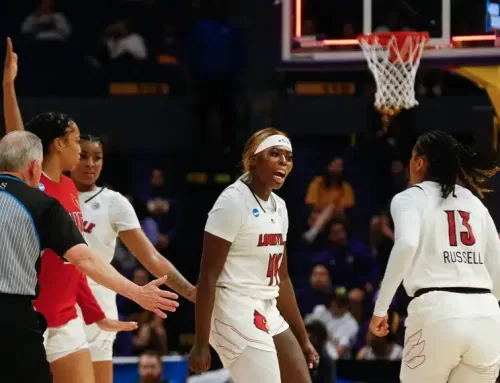By Caitlyn Crenshaw–
When Logan Green constantly had trouble traveling between his home in L.A. and college in Santa Barbara, he came up with the idea to create Zimride, according to Curtis Rogers, who manages university partnerships for Zimride.
UofL recently launched a partnership with Zimride to improve alternative transportation, along with the university’s new program CARpool.
Carol Norton, the assistant director of the department of sociology, is member of the alternative transportation committee as an employee volunteer and helped to propose both of these programs, CARpool and Zimride, to the Sustainable Operations committee. “It is something that I’m passionate about,” said Norton.
Through CARpool, students, faculty and staff can work with the parking office to designate where you will park, according to Norton. Carpoolers individually decide how to split the cost of the parking permit and how to organize their schedules.
There are also incentives in place for those who carpool. Norton said: “Every member of that carpool will receive ten passes per semester if there are ten times when you can’t carpool. You’re not left out in the cold; you’ve made an investment. You can use that pass in whatever color the permit is.”
Unlike other cities, such as Nashville, Louisville does not have a high occupancy vehicle lane on its interstates to encourage carpooling.
“UofL has a climate action plan and cutting its carbon emissions is part of that action plan and that is tied to vehicle use,” said Norton. In addition to the CARpool program, the university’s partnership with Zimride has the potential to have a positive effect on the number of carbon emissions.
Through a student’s personal account on Zimride, the amount of miles, money and carbon dioxide saved are all calculated. Norton said, “Zimride is the largest network of any rideshares in the United States among college campuses.”
Norton said: “In five years, I would love to see that the majority of the people are members of Zimride. And that we have an actual carpool parking lot, perhaps. We find that our carbon emissions have gone down.”
Rogers said, “Zimride has partnered with over 100 college campuses.” Zimride launched last year at Indiana University-Bloomington and within one month had 1,000 matches. Currently, Zimride has logged over 1,483,168 miles through Indiana University students.
“We would love to have the feedback from the students. Right now, we’re just trying to get the word out to the students and the rest of the campus,” said Norton.
Nathan Sheeran, freshman bioengineering major, who commutes hasn’t heard of the carpooling program or Zimride, said “there are a lot of people who live around me that have the same schedule, so we could commute together.”
Zimride offers features, such as entering your preferences for music, smoking and what car you have, in addition to the ability to interface it with your Facebook account.
Norton said, “The dollar sign seems to motivate people first.” She started carpooling to the university when the price of gas increased a year and a half ago and was introduced to someone in her area through a colleague.
we expect to see students share rides on longer, one-time trips. This offers great savings to students with vehicles, and offers car-free students more options for getting out of town.
One of the advantages to Zimride, according to Norton, is “you meet new people.” When Norton began carpooling with Vicki Tencer, they didn’t know each other. “And now we’re friends,” said Norton.
Sheeran said, “I did (carpool) in high school and that’s how I got involved in some clubs.”
Norton said of the university’s new initiatives, “We feel like we’ve been able to contribute to something to the university as individuals, not just as staff.”
[email protected]
Photo courtesy of Flikr/Joe Shlabotnik






